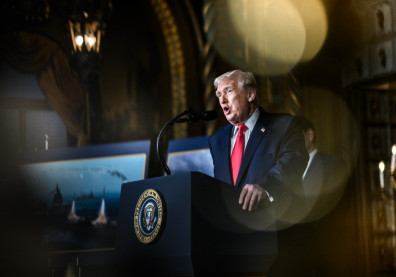Email #1
Subject: Your first visit to Taiwan
From: Eric Wang
To: John L. Gin
------------------------------------------------------------------
Dear Mr. Gin,
We are delighted to have you visit and give us a training series on customer service. Your reputation as a customer service trainer precedes you, and I am confident that you will teach us a lot.
During your month-long visit in Taiwan, I will have the pleasure of being your guide. To make your stay more enjoyable, could you please tell me about
your interests or if there is anything that you would like to do or see in Taiwan? I look forward to hearing from you and meeting you in the near future.
Best regards,
Eric Wang
Administrative Assistant
Human Resources Department
J.B. International
Email #2
Subject: Re: Your first visit to Taiwan
From: John L. Gin
To: Eric Wang
--------------------------------------------------
Dear Eric,
Thank you for your email and kind words. I am very glad to meet you. But please there is no need to be so formal. We are still colleagues, and I am sure I will also learn a lot from you too.
I am really looking forward to visiting Taiwan. I recently read an article in the New York Times ranking Taiwan 11th out of 52 places to visit in 2014. It mentioned extensive bike trails, and a vibrant hotel and club scene in Taipei.
But I have also heard a lot about its natural beauty and mountainous geography. And everyone raves about the delicious foods too.
But I do not want to be an inconvenience. So, please don’t go out of your way to especially take care of me.
Warm regards,
John
International Sales Training Manager,
Customer Service
J.B. International
學習重點(1):正式及非正式用語
因為是初次聯繫,Eric和John在各自的email裡都用了比較正式的口吻,表達尊重之意,但是兩封信在稱謂和用語的使用上仍有一些不同:
1. 稱謂
Eric給John的信中,一開始以Mr. Gin (last name or family name)稱呼,信末寄件者署名的部分則用了Eric
Wang,是他的全名(full name)。對方一看就知道這是封正式的書信。相較而言,John在回信中只稱呼對方的first name(Eric),以表現親切。
2. 用語
因為是第一次聯絡,Eric在信中的用語較為正式,以表達尊重與禮貌。但是如果雙方持續email通信,就可以使用較非正式的用語,才不會有距離感。以Eric 信中的句子為例:We are delighted to have you visit us.(能邀請您到訪是我們的榮幸。)
如果是寫給熟識者的email,可以說I’m looking forward to your visit. 注意:I’ll, I’m, I’ve等縮寫不會在正式書信裡使用。
Your reputation as a customer service trainer precedes you.(久仰您在客服訓練界的盛名。)Your reputation⋯⋯precedes you. 這個用語類似中文的「久仰大名」,通常在第一次書信聯
絡中使用,而且僅適用於對方頗具知名度的情況。在第一次見面的談話中,可以用較為口語的We’ve heard so much about you.
I will have the pleasure of being your guide.(我很榮幸負責接待您。)如果是熟識者,可以說I’ll show you around.
Could you please tell me⋯⋯?(能不能請您告訴我⋯?)如果是熟識者,可以省略could,直接說Please tell me⋯⋯或Let me know⋯⋯。
雖然John在回信中要Eric別那麼客氣(There is no need to be so formal.),但畢竟他倆是商業夥伴,John對Eric 說話還是挺禮貌的,例如以下的例句:
Thank you for your email and kind words.(感謝您的來函。)Thank you較Thanks正式。
I do not want to be an inconvenience.(我不想給你添麻煩。)若彼此熟識,可以說I don’t want to bother you.
學習重點(2):實用email用語
Eric與John使用了下列email中常用的詞語:
I look forward to hearing from you and meeting you.(很期待您的答覆,也期待與您見面。)常用於信末。注意:片語look forward to中的to是介系詞,後面要接名詞(例如to your visit)或是 V-ing(例如to meeting you)。
Best regards; Warm regards(致上誠摯的問候。)用於信末,在發信者署名前一行。
There is no need to be so formal.(不需要那麼客氣。)這個用語可以拉近與對方的距離。
小試身手
Jane Chen正在寫一封較正式的email給即將來台的訪客Helen Wilson,但是下面畫線的四個地方寫得不太理想,你覺得可以怎麼幫她修改呢?
Dear 1 Ms. Helen Wilson,
2 Nice to meet you. I am sure you will enjoy staying in Taipei. I will be your guide and show you around. 3 Tell me if you want to go anywhere in particular.
I look forward 4 to hear from you soon.
Best regards,
Jane Chen
小試身手答案
1. Ms. Helen Wilson改成Ms. Wilson(較正式的email會以last name稱呼對方,但不會使用全名)。
2. Nice to meet you.常用於口語,可以改成It will be our pleasure to have you visit us.
3. Tell me⋯⋯改成Could you please tell me⋯⋯較禮貌。
4. to hear改成to hearing(look forward to後面要接名詞或V-ing)。















